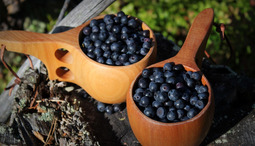- On
- 31 Mar 2022
- Reading time
- 3 minutes
For the vast majority of ordinary people, the local supermarket is the retail establishment where they will spend a large chunk of their income. With the need to return every week ensuring that you will be well familiar with what it has to offer, your choice of supermarket will have a big impact on the variety of foods you are exposed to as well as the amount of money you have left over at the end of the month.
With so many options out there these days, UK shoppers truly are spoiled for choice when it comes to their weekly grocery shop. Regardless of whether you are used to the higher-priced luxury shops or opt for the budget option, there are plenty of choices available.
But in the race for market dominance, who comes out on top? In this short overview we will give you a run-down of the supermarkets favoured by UK shoppers. To rank the available options, we will compare them based on a few key categories, including online grocery shopping experience, price and environmental impact.
Price
With inflation and cost of living increases wreaking havoc on the household budgets of many across the UK, the cost of supermarket produce has become a hot-button topic.
With that said, the relative price of supermarkets has proved to be one of the most important factors shaping consumer’s choices these days.
Of the choices available to UK consumers, the budget German retailers Lidl and Aldi come out ahead by a considerable margin. Waitrose are by far the most expensive of the national grocery retailers. Although arguably this is an unfair comparison considering Waitrose markets itself as a premium supermarket.
Perhaps most surprisingly, the online retailer Ocado was closer to Waitrose than Lidl and Aldi in terms of price, which shows that the convenience of online shopping evidently comes with a price!
When considering these, it is important to bear in mind that supermarket prices vary from season to season, as well as by the size of the shop you do. For example, while Lidl and Aldi performed the best on smaller to medium shopping trolley sizes. Asda and Sainsburys performed better on bigger trolley sizes.
Online shopping availability
It perhaps comes as little surprise that the online retailer Ocado scores the best when it comes to the online shopping experience. With such an extensive range of products available — albeit at a premium price — the major retailers struggle to compete.
However, outside of Ocado, there is a surprising amount of variation in terms of the online shopping experience on offer. The longer established national retailers tended to score very highly, including Tesco, Asda and Sainsburys. However, the newer entrants into the market — such as Aldi and Lidl — struggled to keep pace. This makes sense, as while the former have developed their own in-house delivery services, the latter have relied on third-party shopping solutions.
In terms of how the bigger contenders compared, there was a degree of variation in terms of the quality of service shoppers received. However, the reports were largely positive, with pricing, overall availability and the quality of products received scoring well.
Environmental impact
As one of the most significant contributors to climate change, supermarket shoppers have become increasingly environmentally conscious in recent years. As such, some shoppers prefer a shopping experience that prioritises reducing environmental impact over other factors. It is safe to say that not all supermarkets were created equally in terms of the environmental impact they have.
There are many things that supermarkets can do to be more sustainable, which covers both their operations and the products they sell. The operational side includes aspects such as how they power their shops, the use of refrigeration, delivery vans and depots, and how they handle food waste. On the products side, this covers the food packaging they use and what they do with any food waste they generate. But how do the big supermarkets stack up in terms of their environmental impact?
In terms of their business-wide greenhouse gas emissions, plastic usage and food waste, Lidl and Waitrose come out on top of the food chain.
The German retailer Lidl’s ranking was helped by the widespread availability of loose food products as well as the smaller array of food products on offer. Both aspects help to lower the amount of food waste that is generated. It also has a hyper-efficient operational model which helps to lower its emissions.
Similarly, Waitrose scores well on plastic usage, greenhouse gas emissions, food waste and the ambition of the environmental targets it has set.


